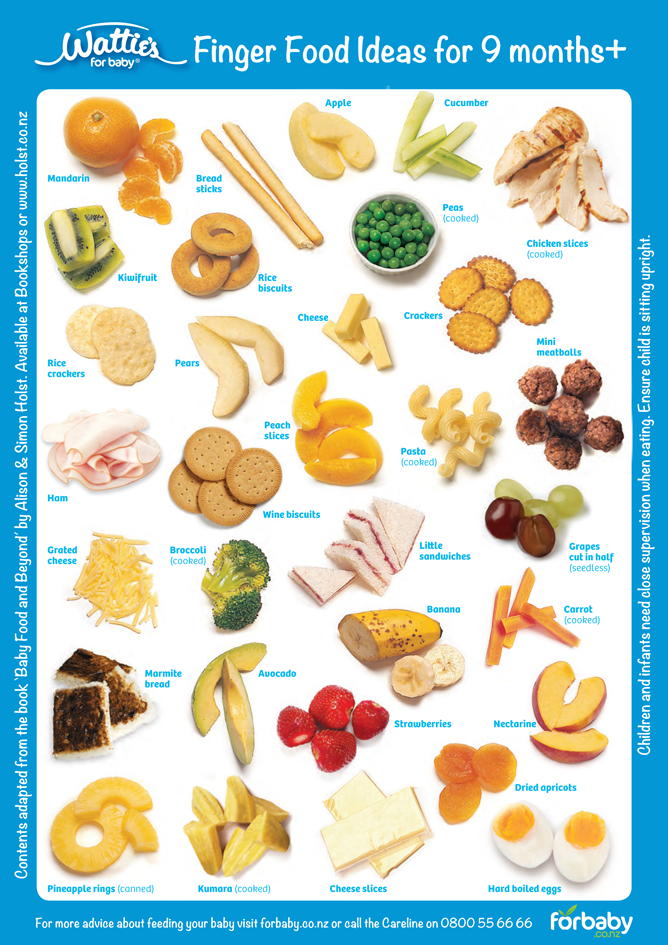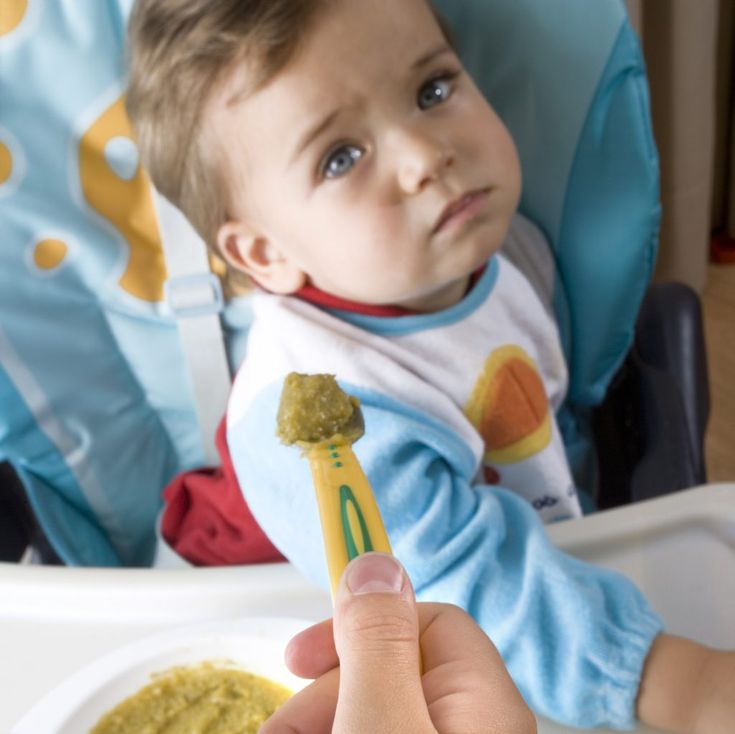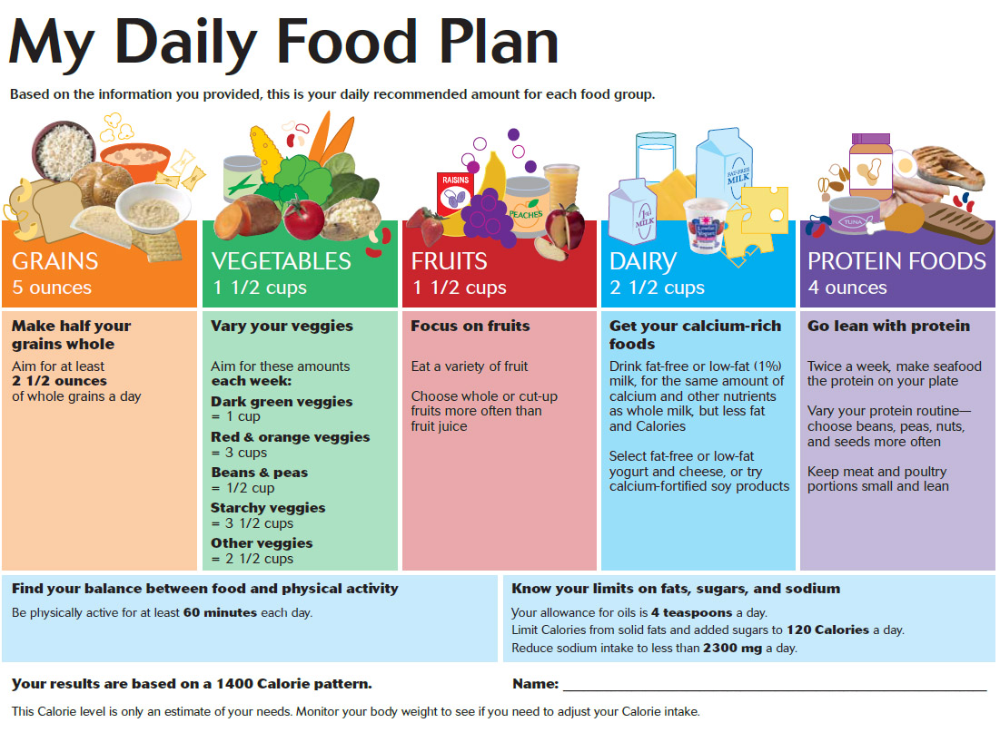Baby will only eat sweet food
My Baby Will Only Eat Sweet Foods
We received two separate e-mails this week from Mums whose little ones seem to have developed a sweet tooth already!
Connor only seems to like certain fruits
Mum Beverley told us…
and he’ll eat sweet potato for breakfast, lunch and dinner. But that’s all – if I try to offer him anything else, he either grimaces, gags or won’t open his mouth at all.
Well, Beverley, this is actually a very common problem – and it’s not surprising when you consider that infant milk (breast milk in particular) has a very sweet taste. If milk has been your little one’s sole source of nutrition for much of his first 6 months, then a little resistance to an entirely new flavour is natural!
That being said, we DO recommend trying to nip this in the bud as early as possible. Tempting though it may be to keep your baby happy by indulging his sweet tooth, in the long term it may limit the range of nutrients he receives and lead to very picky eating later on.
In our experience, the best way to get around a preference for sweet foods is to serve savoury ones in disguise!
Say, for instance, your baby has a passion for sweet potatoes but will steadfastly refuse to eat zucchini (courgette). Then try serving a meal of sweet potato, with just half a teaspoon of zucchini stirred in. Continue to serve this combination for a couple of days, then increase the quantity of zucchini to 1 teaspoon. Over the next few days, continue to increase the amount of zucchini you are adding to the dish, until it becomes the dominant flavour. Eventually, you should be able to serve it separately to the sweet potato!
Of course, we are using zucchini as an example and you can apply this technique of combining sweet and savoury flavours to any foods that your baby either enjoys of refuses.
Don’t always assume that a grimace means your baby doesn’t like a certain food!
Anxious to please their babies, some parents are quick to withdraw a particular food, convinced that a grimace means that their little one does not like the flavour. However, babies expressions at mealtimes are not always reliable indicators of their opinions – they may pull a face more in surprise at a new flavour than in displeasure! It may also take several attempts to get your baby to try – and appreciate – a new taste… so don’t give up too quickly and assume that your little one will only eat sweet potato!
However, babies expressions at mealtimes are not always reliable indicators of their opinions – they may pull a face more in surprise at a new flavour than in displeasure! It may also take several attempts to get your baby to try – and appreciate – a new taste… so don’t give up too quickly and assume that your little one will only eat sweet potato!
Veggie recipes to tempt your baby
Take a look at some of our vegetable recipe pages – we have lots of ideas and delicious combinations to help your baby enjoy a range of flavours…
Pumpkin
Swede (rutabaga)
Bell peppers
Lentils
Butternut squash
Sweet potato
Vegetarian recipes (6 mths+)
Vegetarian recipes (10 mths+)
Don’t forget to leave a comment and share YOUR tips for helping a sweet-toothed baby appreciate a wider range of flavours!
My Baby Only Likes Sweet Food (Healthier Options for Picky Eaters)
If you are wondering why your baby only wants to eat sweet foods, you are not alone.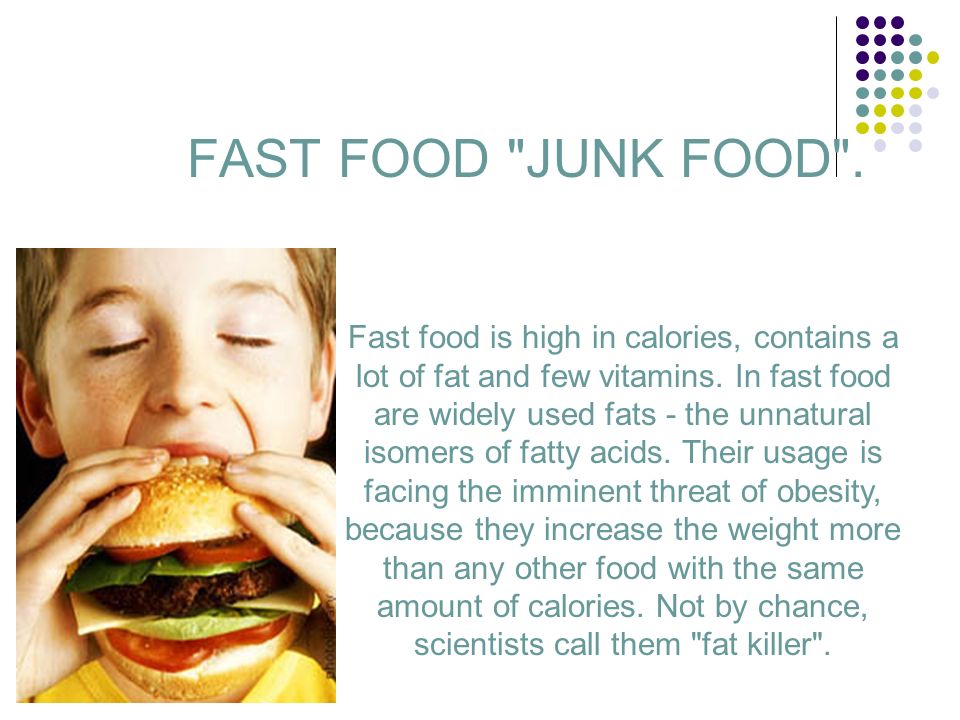 In fact, the issue may be more common than you think. But why is this so? And how can you make sure your child doesn’t consume too much sugar?
In fact, the issue may be more common than you think. But why is this so? And how can you make sure your child doesn’t consume too much sugar?
By the time they start consuming solid foods, most children are already predisposed to prefer sweeter foods because of the flavors of breastmilk and formula. There are several things you can do to ensure that your baby does not consume too much natural or added sugars as overconsumption can lead to major health issues throughout their life.
Read on to find out why your baby only likes sweet food, which foods are healthier for them, why some kids develop a sweet tooth, and what you can do about it.
Table of Contents
My baby only wants to eat sweet foods
Many babies and toddlers seem to develop a taste for or prefer eating only sweet foods.
This preference, while it can be alarming, is quite natural and normal. While it is partly inherent to their biology, it is also partly shaped by each family’s eating habits.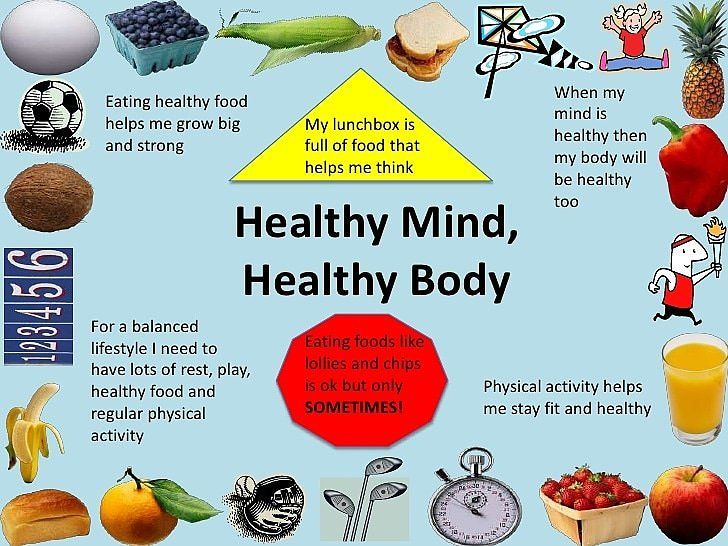
Thankfully, there are some things you can do to help your child reverse course even if they are already well down the path of becoming loving sugar way too much. Parents have much control over their child’s diet and even the development of their taste buds through the methods we will detail later on below.
Why do babies prefer sweet foods?
By the time they begin to try solid foods, babies often already have a preference for sweeter flavors.
The simple reason why many babies learn to prefer sweet foods is that they develop a taste for sweet flavors from their breastmilk or formula.
There is also evidence to suggest that in fact babies are born predisposed to liking sweet flavors to attract them to their mother’s milk. In addition, this preference for sweet foods is also driven by a hard-wired instinct to seek natural high energy sources.
Keep baby from developing a sweet tooth
Many parents try to avoid feeding their baby sugary sweet foods, hoping that this will help them want to eat healthier foods later on. After all, if they’ve never tried a certain food, they won’t know what they’re missing, right?
After all, if they’ve never tried a certain food, they won’t know what they’re missing, right?
While there is some truth to this myth in that feeding your baby a wide variety of foods when they are younger can result in an older child who actually likes broccoli, there is also no harm in letting them enjoy a sweet treat every once in a while.
In other words, no need to be upset if grandma sneaks your baby or toddler a few pieces of chocolate or a juice box whenever she visits.
In general, it is a good idea to offer sweet foods in moderation, try to reserve sweets like cake and cookies for special occasions, don’t give candy for rewards, and make water the primary beverage in your home.
In addition, if you want the best chance at keeping your baby from developing a sweet tooth, never give sweet foods to try and calm an upset child. This will only teach them to associate sweet goods with comfort.
The best thing you can do is keep sugary snacks and candy out of the house in the first place, which will help everyone in the whole family eat healthier anyway! Kids learn from what they see and modeling good behavior can start now while they are young.
How much sugar is safe for babies
Sugar adds up fast, and there is no amount of added sugar that is recommended as healthy for babies and young toddlers.
Natural sugars, such as those found in fruit juice, are OK in moderation. Experts recommend 4 ounces of juice or less for babies older than 1 year.
The recommended daily allowance of sugar for children between the ages of 2 and 18 is any amount less than 25 grams (6 teaspoons) of added sugar a day. But what exactly is added sugar?
Keep in mind that there are lots of foods, such as jello, that include a lot of sugar with little nutritional benefit.
Natural sugar versus added sugar
Natural sugar refers to any form of sugar that is found naturally in foods like milk and fruit.
Added sugar is any form of sugar that is added to processed foods during the manufacturing process. It can have many names and can be identified by checking the product label.
Some of the names to watch out for include: high-fructose corn syrup, malt sugar, raw sugar, turbinado, dextrose, sucrose, and other ingredients ending in “ose.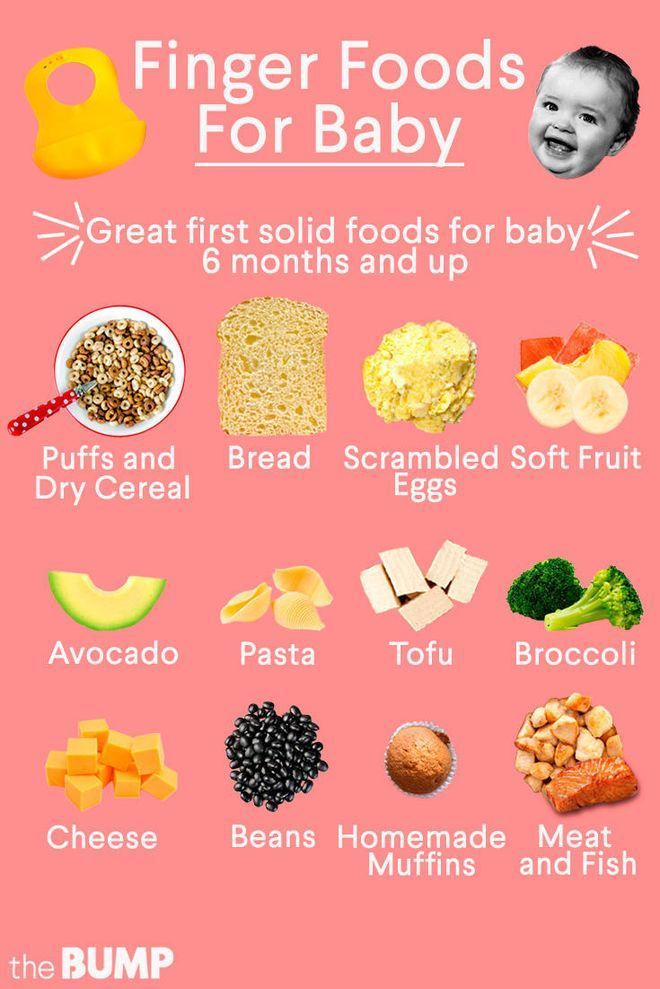 ” They are metabolized very differently by the body and can lead to a whole host of health problems from hyperactivity to heart issues.
” They are metabolized very differently by the body and can lead to a whole host of health problems from hyperactivity to heart issues.
Processed foods, including many cereals, snacks, and purees made for babies, can be surprisingly high in added sugar. The more you can avoid these foods and make your own, the better. Most children eat more sugar than they should, simply because of these added sugars in their favorite processed foods and drinks.
What sweet foods are good for babies?
Thankfully, there are better options for sweet foods than sugary snacks and drinks.
If you’re looking to indulge your baby’s sweet tooth, and get some healthy food into them at the same time, try these sweet treats instead:
- Applesauce – Apples are loaded with potassium, fiber, and Vitamin C.
- Mandarin oranges – High in Vitamin C and Vitamin A.
- Berries – High in fiber, antioxidants, and Vitamin C.

- Grapes (halved for safety of course) – Full of Vitamin C and Vitamin K.
- Sweet potatoes – Chock full of Vitamin A, beta-carotene, fiber, and Vitamin B.
- Bananas – High in Vitamin B, potassium, magnesium, and fiber.
- Unsweetened coconut milk – High in calcium, potassium, and magnesium.
- Yogurt (look for a brand that is low in added sugar) – Provides probiotics, calcium, and protein.
What sweet foods should be avoided?
Now that you know what sweet foods your little one can eat, which ones should they avoid?
Here are some of the worst offenders for babies and toddlers:
- Sugary cereals – Even cereals specifically marketed for kids can be unhealthy for them; in fact sometimes they are the worst offenders. Look for baby oats, oatmeal, or cereals with low sugar instead.
- Soft drinks – Sugary sodas are some of the worst culprits for added sugars; there’s just no reason why your little one should be drinking them.
 If your little one just hates drinking water, cow’s milk or unsweetened coconut milk can be a good substitution instead.
If your little one just hates drinking water, cow’s milk or unsweetened coconut milk can be a good substitution instead. - Fruit juice (in moderation) – High amounts of fruit juice will quickly lead to too much sugar intake. Try to limit fruit juices to less than 4oz per day, and watering them down can help.
- Candy – Aside from being a choking hazard and horrible for your little one’s teeth, candy contains too much added sugar for your baby. If you must, let your baby nibble on a square of chocolate instead.
- Ketchup – This may be one you did not think of, however, ketchup can add a very large amount of sugar to your child’s diet if they like to put it on everything. Luckily, there are tons of low- or no-sugar-added formulas on the market, or you can make your own.
- Cakes and cookies – Like any of us, it can be hard to know when to stop. Once you taste something as amazing as cake or cookies, you just want more.
 But packaged cookies from the store and that cake fresh from the bakery come loaded with added sugar. If you really want to treat your little one, look for a no-sugar cake mix or substitute applesauce in your own recipe. Cookies without added sugar can usually be found on the health food aisle, or made by substituting with maple syrup.
But packaged cookies from the store and that cake fresh from the bakery come loaded with added sugar. If you really want to treat your little one, look for a no-sugar cake mix or substitute applesauce in your own recipe. Cookies without added sugar can usually be found on the health food aisle, or made by substituting with maple syrup.
When is it safe to give babies sweets?
Of course, at times you want to let your little one indulge in a few sweet treats. Whether it’s Thanksgiving dinner, a sibling’s birthday party, or just a visit to grandma’s house, at what age is it safe to allow the occasional bit of cake or cookie?
As long as you aren’t making it a habit, your child should be able to try the rare treat after the age of 1 year.
You would certainly want to wait until at least 6 months of age, especially as they are just beginning to have solid food around this time.
Are sweets bad for babies?
As you are likely already aware, a diet that is too high in sugars – even natural ones – can have major effects on your child’s health.
Some possible consequences of too much sugar consumption include:
- Tooth decay – Eating and drinking too many sweets, especially without proper attention given to dental care at bedtime, can lead to early childhood caries. Sugar helps bacteria grow, and though it may be tempting, sending your child to bed with a bottle of juice or even milk is not good for their teeth.
- Excess weight gain – It should go without saying, but too much added sugar also leads to too much weight gain and even childhood obesity. This is because sugar offers empty calories with no nutritional value.
- Increased risk of juvenile diabetes – Although the effects may not present themselves until much later on, starting your child off on a foundation of consistently exceeding the daily recommended sugar intake will drastically increase their risk for developing diabetes.
- Heart conditions – Again, although these effects wouldn’t show up until later, too much sugar is bad for your baby’s heart.
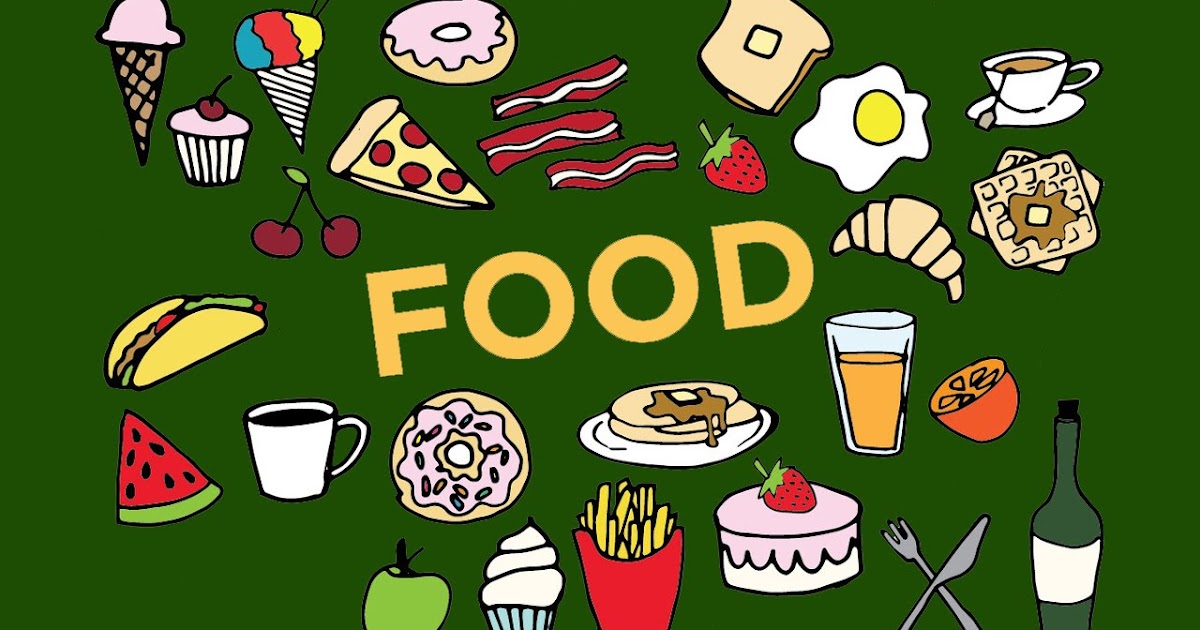 High amounts of sugar can affect the heart by raising blood pressure and increasing inflammation.
High amounts of sugar can affect the heart by raising blood pressure and increasing inflammation.
why this happens, causes, consequences, what to do at home
Chocolate as a reward, a lot of sweets on holidays or a bun as a snack - this is often the sin of most parents. Why does a child eat a lot of sweets, is it necessary to forbid him, how much sugar is considered normal? We answer these and other burning questions together with an expert.
How many sweets can be eaten by children of different ages
Children under three years of age are not recommended to give sweets at all, since it is still difficult for the baby's body to digest them. Sweets include not only sweets, cakes or pastries, but also other sweeteners - honey, molasses, fructose and others. The following amount of sugar per day is considered safe:
| 3-6 years | 20 g |
| 7-11 years | 24 g |
| 11-18 years old | 30 g |
It is worth considering that fruit and tea with tea and tea with tea sugar 一 the same sweets.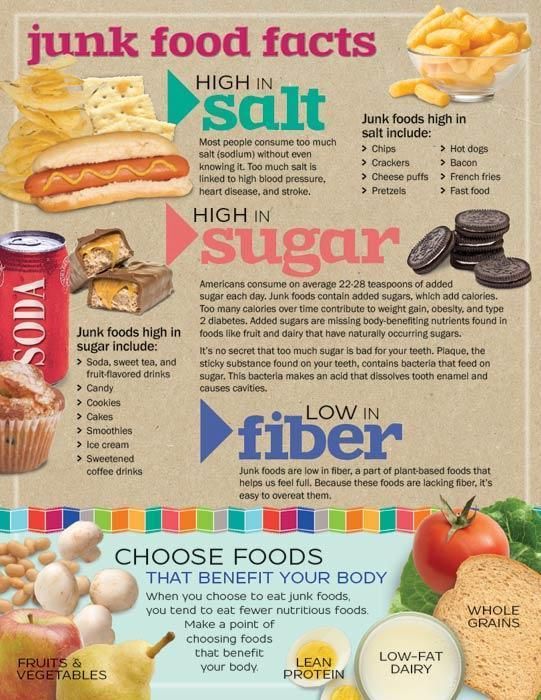 Therefore, adhering to the norm of 25 grams (2-3 sweets), you need to remove sugar from cereals or reduce the amount of muffin in the diet (1).
Therefore, adhering to the norm of 25 grams (2-3 sweets), you need to remove sugar from cereals or reduce the amount of muffin in the diet (1).
Reasons why a child eats a lot of sweets
A small amount of sugar in a child's diet is considered normal. However, the abuse of sweets is highly undesirable. There are several reasons why a child eats a lot of sweets. nine0003
A small child
In this case, the body does not have enough nutrients and energy for an active lifestyle. Normally, they come with food, but it is not always possible for children to sit down and feed normally. After all, it is much easier to have a snack with cookies or chocolate. Sweet gives a quick burst of energy and a feeling of fullness, but it has a negative effect on the body as a whole. Therefore, it is recommended to exclude such snacks and accustom the child to proper and timely nutrition. nine0003 Photo: pixabay.com
Unbalanced diet
Most often this happens if the child's menu is low in complex carbohydrates (2). The best solution here is to add cereals to the diet, because they contain the necessary complex carbohydrates. In addition, they practically do not increase blood sugar levels, are rich in vitamins and trace elements, and provide a feeling of satiety for a long time. Therefore, porridge for breakfast is an excellent and safe source of energy for the body.
The best solution here is to add cereals to the diet, because they contain the necessary complex carbohydrates. In addition, they practically do not increase blood sugar levels, are rich in vitamins and trace elements, and provide a feeling of satiety for a long time. Therefore, porridge for breakfast is an excellent and safe source of energy for the body.
Flavor enhancers in sweet foods
Excitatory effect on the central nervous system and cause chemical dependence. Such additives are put in most confectionery products, "planting" a person on them. The child's body is less resistant to any addiction, so parents should control the quantity and quality of the child's use of sweets. Better yet, replace various sweets with dried fruits or prepare desserts yourself.
Consequences of refusal of normal food
It should be understood that the abuse of sweets can lead to a number of pathologies. nine0003
- Caries. It has been proven that sucrose directly affects the occurrence of this disease (3).

- Obesity. Dangerous changes in the work of the central nervous and cardiovascular systems, affects the psyche of the child, reducing his self-esteem.
- Diabetes mellitus. With the development of the disease, the child's well-being worsens, appetite greatly increases, weight is lost sharply, constant thirst and bad breath appear.
You can prevent the occurrence of these diseases by adhering to proper nutrition and limiting the amount of sugar to the recommended values. nine0003 Photo: pixabay.com
Nutritionist and expert in the field of nutrition Olga Matveeva adds:
- The consequences of refusing normal food, especially with a bias towards sweets, can be very sad. These are diseases of the gastrointestinal tract (gastritis, cholecystitis, pancreatitis), kidney and liver diseases, and even mental disorders. Therefore, the question should be corrected not only by a nutritionist, but also by a psychologist, and he should work with parents too. Until the age of 7, a child is completely dependent on how correctly his closest person behaves in relation to food. nine0003
Until the age of 7, a child is completely dependent on how correctly his closest person behaves in relation to food. nine0003
How to stabilize a child's appetite
The process of stabilizing a child's appetite is not always easy or quick. Especially if the diet is broken for a long time. But, with some effort, you can achieve your goal.
Stimulate appetite
It is recommended to increase the child's physical activity so that he starts to feel hungry more quickly. Walking in the fresh air or playing sports always has a positive effect on appetite. Equally important is the presentation of the food. You can decorate food with various figures carved from vegetables or serve it in unusual dishes. nine0003
Cook together
It is much more interesting for a child to eat what he helped to cook. Therefore, older children can share responsibilities in the kitchen. Trust your child to, for example, stir vegetables for salad or grate carrots.
Offer the dish many times
This rule applies especially to very young children.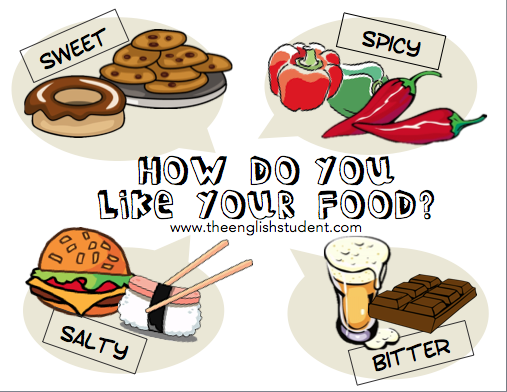 Unfamiliar products can cause them fear and, accordingly, rejection. It takes some time to overcome this state. Therefore, offer the same dish repeatedly. For some children, 2-3 times is enough, others agree to eat at 10-15 attempts. nine0003
Unfamiliar products can cause them fear and, accordingly, rejection. It takes some time to overcome this state. Therefore, offer the same dish repeatedly. For some children, 2-3 times is enough, others agree to eat at 10-15 attempts. nine0003
Away with food violence
The desire to feed a child by any means can lead to the development of an aversion to food. A short-term lack of appetite usually indicates that the accumulated energy from the previous meal has not yet been used up. Therefore, it is better to wait a bit and offer to eat a little later. If the child does not finish eating, do not scold him and do not force him to eat every last crumb. Maybe you just gave him too much.
Photo: pixabay.comDon't allow snacks
They lead to a feeling of fullness, forcing the child to forego the main meal. Remove various sandwiches, sweets and the like so that the child does not refuse normal food.
Remove distractions
Do not play cartoons or read books while eating.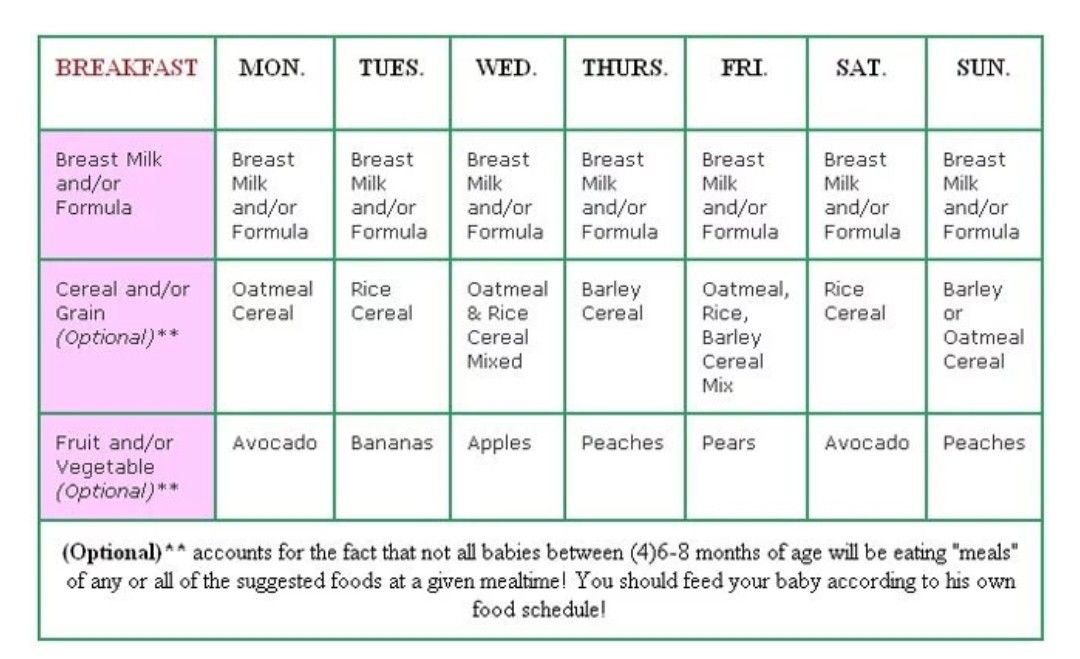 It is necessary that the child treats food consciously, feels its taste and understands that he has eaten.
It is necessary that the child treats food consciously, feels its taste and understands that he has eaten.
Do not use food for manipulation
Food is just a source of energy and strength. It should not be used as a reward or punishment. You also don't need to show your child how important nutrition is to you. Do not praise him for eating something healthy or a few more spoonfuls. This behavior can lead to manipulation by the child. For example, begging for toys or chocolates in exchange for a plate of porridge eaten. nine0003
Start with yourself
It will not be possible to stabilize the child's nutrition if the parents do not adhere to the rules and regulations. Therefore, try to establish proper nutrition not for a single baby, but for the whole family as a whole.
Frequently Asked Questions
When should I see a doctor due to lack of normal appetite?
— It is necessary to go to the doctor with the child in case of any sudden change in appetite. If this change is due to an increase in interest in sweets, you need to understand the reason. As a rule, the reason for such a change is a violation of obtaining energy from more resourceful food. That is, this is a sign of a shortage of energy resources: the body seeks to get it from the most easily digestible source - simple sugars. Among the reasons for such cravings may be a violation of the digestive process, helminthiasis, vitamin deficiency or high physical exertion, says immunologist, pulmonologist, family doctor Valentin Shishkin .
If this change is due to an increase in interest in sweets, you need to understand the reason. As a rule, the reason for such a change is a violation of obtaining energy from more resourceful food. That is, this is a sign of a shortage of energy resources: the body seeks to get it from the most easily digestible source - simple sugars. Among the reasons for such cravings may be a violation of the digestive process, helminthiasis, vitamin deficiency or high physical exertion, says immunologist, pulmonologist, family doctor Valentin Shishkin .
What healthy sweets can be offered to a child?
— Fresh berries, fruits, dried fruits. However, it is worth remembering that excessive consumption of fruits to the detriment of good nutrition will not be beneficial. Fruits are good as a dessert, in addition to the main meal.
You can eat regular sweets that do not contain trans fats. These are marshmallows, marshmallows, marmalade. But in limited quantities and only after the main meal, explains nutritionist Olga Matveeva. nine0003
But in limited quantities and only after the main meal, explains nutritionist Olga Matveeva. nine0003
How do you explain to a child that you can't eat only sweets?
— Try to cook natural sweets together with your child and at the same time simply, “on your fingers”, explain to him how sweets affect the body and why it should be limited, — says Olga Matveeva, a healthy lifestyle coach. - It is good to use simple examples that are understandable to the baby. For example, that cars run on different fuels, or what will happen if gasoline is poured into an aircraft engine. People have their own fuel, it can be of high quality, giving energy and health. Or it can be debilitating and harmful. nine0003
Sources
- Some aspects of nutrition in preschool children: the formation of eating habits and their impact on health / Ukraintsev S.E. // 2009. URL: https://cyberleninka.ru/article/n/nekotorye-aspekty-pitaniya-detey-doshkolnogo-vozrasta-formirovanie-pischevyh-privychek-i-ih-vliyanie-na-sostoyanie-zdorovya
- taste sensitivity as a cause of metabolic syndrome formation / Babkin A.
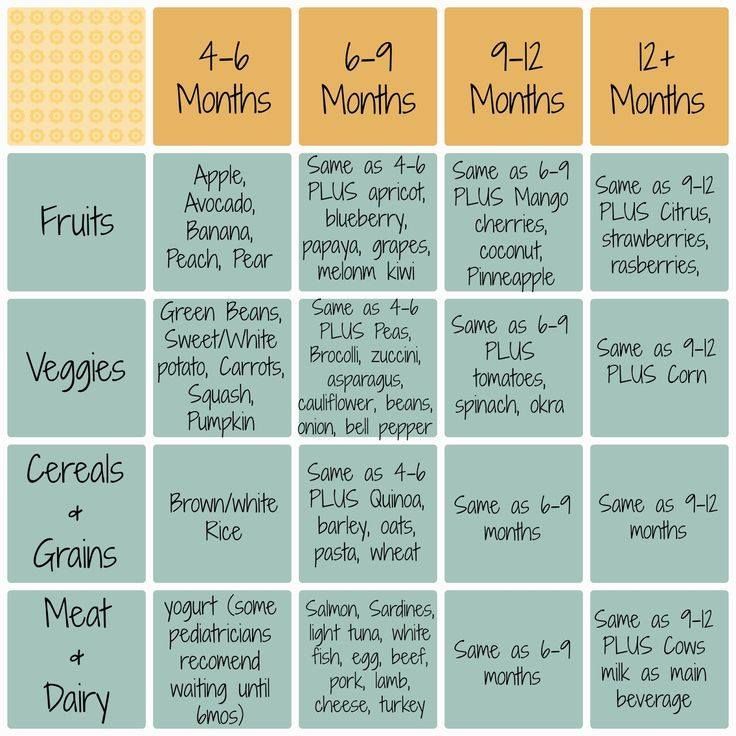 P., Provolneva L.P. // 2016. URL: https://cyberleninka.ru/article/n/snizhenie-vkusovoy-chuvstvitelnosti-kak-prichina-formirovaniya-metabolicheskogo-sindroma
P., Provolneva L.P. // 2016. URL: https://cyberleninka.ru/article/n/snizhenie-vkusovoy-chuvstvitelnosti-kak-prichina-formirovaniya-metabolicheskogo-sindroma - Basic principles of prevention of dental caries in young children / Kiselnikova L.P., Kirillova E.V. // 2011. URL: https://cyberleninka.ru/article/n/osnovnye-printsipy-profilaktiki-kariesa-zubov -u-detey-rannego-vozrasta
Child eats nothing but sweets. What to do?
Ekaterina Ushakhina
The child gorges himself on biscuits, and prefers beautifully packaged sweets to usual food. Each trip to the store ends with the purchase of another kinder surprise or chocolate bar. The baby's appetite is getting worse. This situation is familiar to many parents. They are trying to do something to make the child stop loving sweets so much, but nothing comes of it. What to do? nine0003
Maria Kardakova, nutritionist and mother, in her book First Soup, Then Dessert, tells how to overcome an irrepressible love for sweets.
These tips will be useful to all parents.
Stop buying sweets
First of all, to solve the problem with sweets: parents need to learn not to buy them.
Sugar is not only the usual white sand, but also syrups, honey, fructose, nectars, sweeteners. If the amount of added sugar does not exceed 5-10% of the energy received from all the food eaten by the child per day, there is no cause for concern. nine0003
Serious problems (including dental problems in children and adults) can result from the systematic excessive consumption of foods containing added sugar. We do not include added sugar that is naturally found in dairy products, vegetables, fruits - it is an important component of a healthy diet.
On average, children eat two to three times the amount of added sugar recommended by the WHO, according to the National Nutrition Survey. nine0003
According to European standards, information about the content of added sugar in the product must be indicated on the packaging.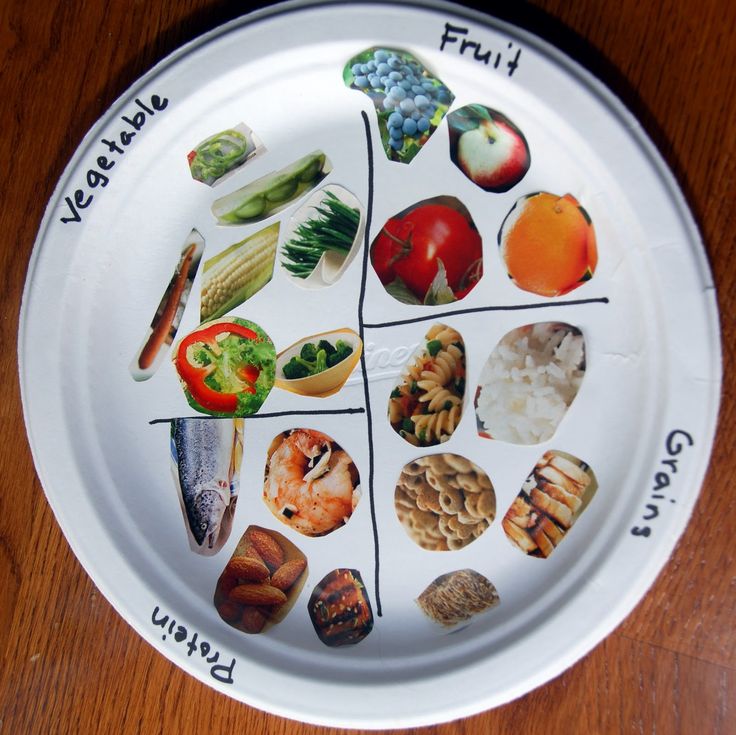 In Russia, controlling the amount of added sugar is a little more difficult: few manufacturers provide this data on the label. However, the presence of sugar in baby food, in any quantity and under any name, should definitely alert you.
In Russia, controlling the amount of added sugar is a little more difficult: few manufacturers provide this data on the label. However, the presence of sugar in baby food, in any quantity and under any name, should definitely alert you.
Do not use dessert as a reward
Children are often rewarded with sweets for good behavior, for homework done. Sweetness can calm the saddest baby in the world! But especially often sweet becomes a reward for the main course eaten. It is this approach that leads to the fact that the child begins to divide food into tasty and tasteless, useful and harmful, which should be avoided. nine0003
Never use sweets as a reward. Source
How to reduce sugar cravings
Start gradually reducing your sugar intake throughout the day. We usually think that sugar is that white sand that is added to tea and cereals. In the usual sense, sweets are chocolate, cakes, sweets and other confectionery.
However, in modern gastronomy, sugar is also found in unsweetened foods: sauces, bread, dairy products, semi-finished products, sausages and juices. Read the labels of all foods your child eats. Check your favorite muesli, fruit yogurt, ketchup and sauces, "low-calorie" and "baby" cookies for sugar content. Try to find less sweet analogues for them or remove them from the diet altogether. nine0003
Read the labels of all foods your child eats. Check your favorite muesli, fruit yogurt, ketchup and sauces, "low-calorie" and "baby" cookies for sugar content. Try to find less sweet analogues for them or remove them from the diet altogether. nine0003
A good idea is not to ban sweets "once and for all", but to stop buying bags of sweets for future use, to keep them "secret" from children on the top shelves.
Table from the book
Make sweets yourself
Sweets can and should be prepared by yourself, preferably with children. You can partially use whole grain flour, include dates and fruits as sweeteners. Healthy homemade cakes are always in place. Make sure that the child's menu is complete. Improve your daily diet by including more vegetables and slow carbohydrates (the main sources of glucose). nine0003
Homemade sweets are much healthier. Source
Sugar stimulates the release of dopamine (the hormone of pleasure), which is why we get used to sweets so easily. But dopamine production is also facilitated by a variety of taste sensations, textures, smells, and even anticipation of a meal. So do not be afraid to experiment, try new healthy foods, look for healthy recipes with your child, go to cafes and restaurants that you have not visited before in search of new food combinations. nine0003
But dopamine production is also facilitated by a variety of taste sensations, textures, smells, and even anticipation of a meal. So do not be afraid to experiment, try new healthy foods, look for healthy recipes with your child, go to cafes and restaurants that you have not visited before in search of new food combinations. nine0003
No to stress, yes to fun!
Children with the help of sweets often seize stress (which can appear for various reasons, including if the baby is hurt or offended several times during the day). In this case, you need to find out what exactly upset him and help him solve the problem.
Keep your child active. Walking and physical activity will help reduce stress levels and distract the child from sweet food.
Quite often children are drawn to sweets simply because they are bored. nine0003
Teach your child to keep himself busy! When we are bored, the brain seeks to get information for processing by any means.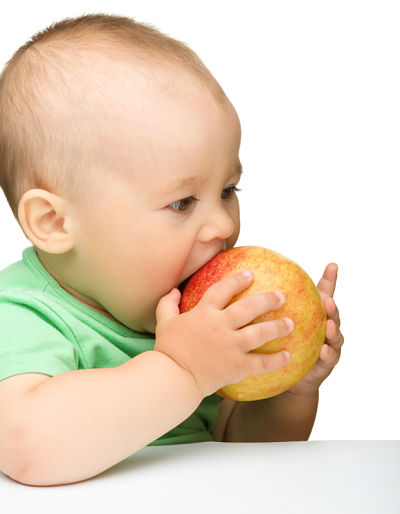 To load it, for example, processing stomach signals or watching TV, requires a minimum of effort. The brain is busy, but at the same time it does not need to decide anything, and the body does not need to strain: the refrigerator is open, the shelves are examined, and the coveted pack with sweet or salty contents is already rustling in small hands.
To load it, for example, processing stomach signals or watching TV, requires a minimum of effort. The brain is busy, but at the same time it does not need to decide anything, and the body does not need to strain: the refrigerator is open, the shelves are examined, and the coveted pack with sweet or salty contents is already rustling in small hands.
Make sure that the child is always busy with something, and does not try to overcome boredom with the help of sweets. Source
Children who cannot regulate their desires and their schedule, much faster than adults, put their brains on such pseudo-employment as constantly chewing food.
But you may well stimulate the child's nervous system in a gentler way. Instead of dessert, offer your child an interesting activity. Play a board game with the whole family, build a house out of blankets, or spend a "sofa night" with hugs.
A little is possible
There is no need to completely exclude sugar from the children's diet. You can cook sweet dishes with your children or, for example, buy an interesting, high-quality dessert you like in a cafe, on a walk, in the park (not regularly, but on occasion). It is not necessary to take an extra box with you, even if the dessert turned out to be especially tasty. nine0003
You can cook sweet dishes with your children or, for example, buy an interesting, high-quality dessert you like in a cafe, on a walk, in the park (not regularly, but on occasion). It is not necessary to take an extra box with you, even if the dessert turned out to be especially tasty. nine0003
You can eat sweets when you really want it, when everyone has chosen the right moment for this and shared the joy of spending time together!
You shouldn't ban sweets altogether. Source
Children who have a relaxed relationship with sweets can easily skip dessert if they don't like it or if the portion is too big. It's great when a child is able to understand when he wants sweets, and when he just wants to eat.
How quickly can you overcome your cravings for sweets? It is impossible to give exact dates, and each child is individual. However, using the right tactics and allocating enough time for activities with the child, cooking and joint leisure, after 1-2 weeks you will notice that the baby has fewer obsessive thoughts about sweets.




